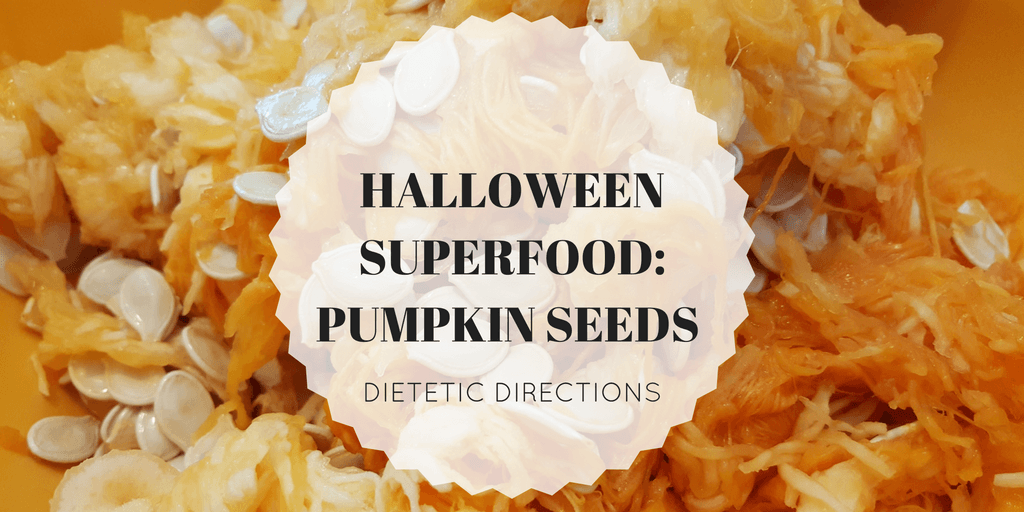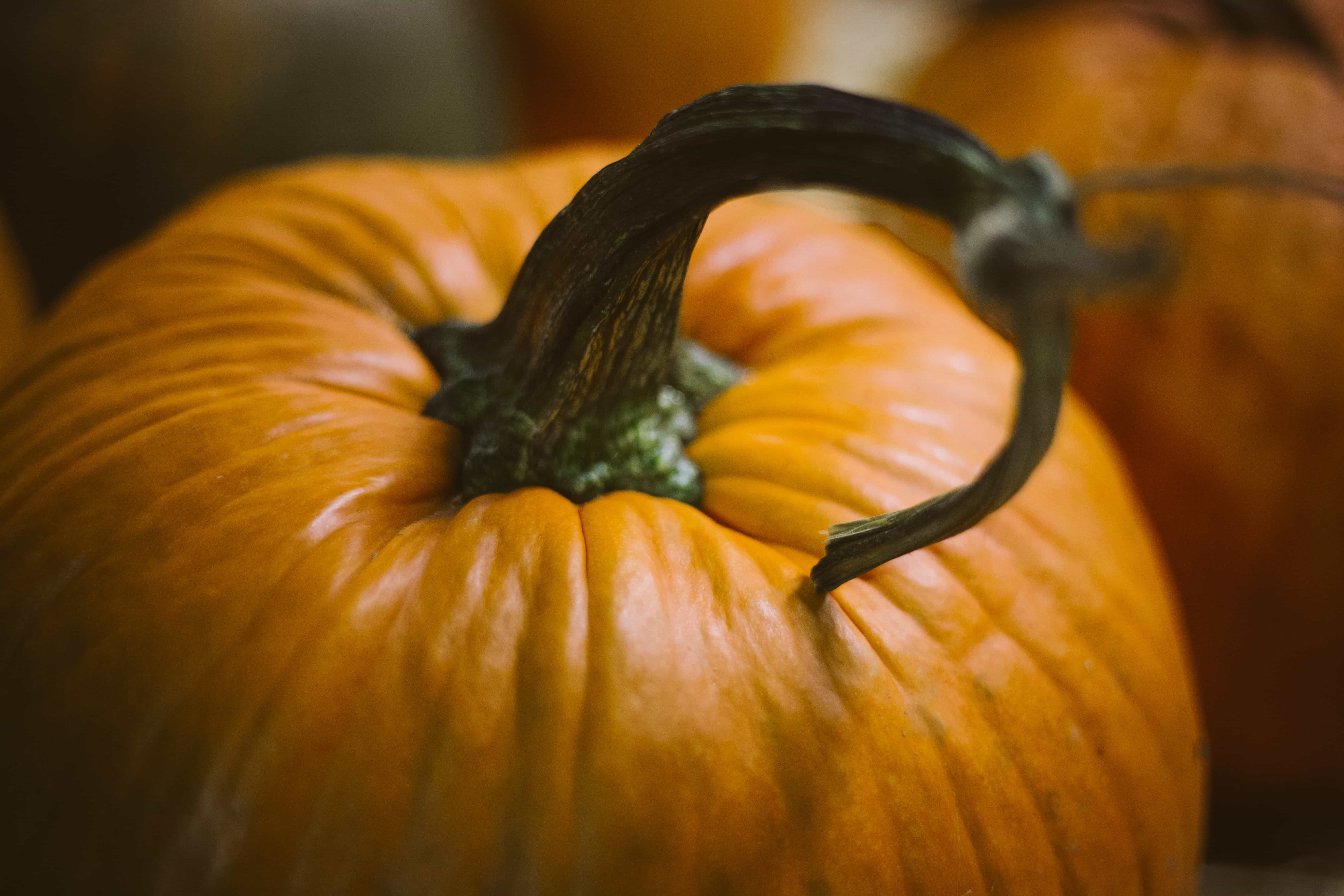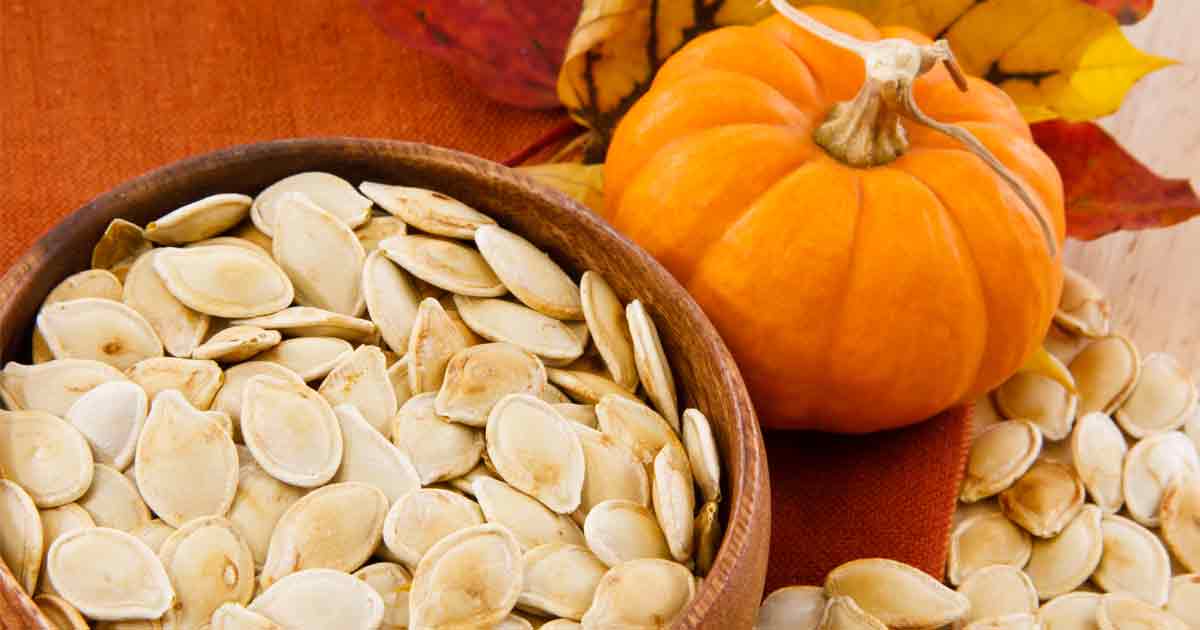
Halloween Superfood: Pumpkin Seeds
Did you know that the name pumpkin comes from the Greek word ‘pepon’, meaning ‘large melon’? Similarly, pumpkins are technically a fruit because they contain seeds. In fact, the average pumpkin contains about 500 seeds. Today, let’s explore the outstanding nutritional profile of pumpkin seeds! Truly a yearlong superfood!
DYK pumpkins are technically a fruit because they contain seeds? Share on XPumpkin seeds, also known as pepitas, are usually green in colour, semi-flat and oval shaped. They have a pleasant nutty taste and a chewing texture. Pumpkin seeds are most often roasted and do not need to be refrigerated. Their outstanding nutrition profile will have you running to the grocery store to incorporate this nutritional powerhouse into your diet.
Nutritional Profile:
Pumpkin seeds are a good source of protein and heart healthy, cholesterol-lowering phytosterols and mono-unsaturated fats. Pepitas are rich in antioxidants and the amino acid tryptophan, which converts to serotonin and melatonin to help with restful sleep.
Pumpkin seeds are incredibly high in magnesium (58% of daily requirement), which protects against heart disease, diabetes, osteoporosis and stroke. Magnesium is one of the nutrients with the highest prevalence of inadequate intakes among Canadian adults (CCHS 2.2) along with vitamin A, vitamin D and calcium. Magnesium deficiency has been associated with chronic fatigue, increased muscle tension, insomnia and possibly depression or anxiety. Read more about role of magnesium in our bodies and food sources here.
A ¼ cup serving of pumpkin seeds contains:
- 189 calories
- 9 grams protein
- 60% of daily potassium requirement (helps control blood pressure, fluid balance, nerve and muscle functioning)
- 58% daily magnesium requirement (heart, nerve and muscle functioning)
- 51% of daily phosphorous requirement (builds strong bones and teeth)
- 32% daily zinc requirement (immunity, cell growth/division, sleep, mood)
- 29% of daily iron requirement (carries oxygen throughout body)
Associated Health Benefits:
– Prostate health
– Diabetes prevention
– Blood sugar control
– Lower blood pressure
– Improved cholesterol
– Improved sleep
– Anti-inflammatory effects for those with arthritis
How to Add Some Seeds in Your Diet:
- Add to hot or cold cereal.
- Sprinkle on top of mixed green salads.
- Add to homemade cookies or breads.
- Add to homemade granola mix.
- Add to yogurt.
- Have a small handful with a piece of fruit for a snack.
Bottom Line:
Pumpkin seeds are an extremely nutritious addition to your diet and support healthy body functions. As with other nuts and seeds, be mindful of portion size and stick to ¼ cup maximum for the day.




